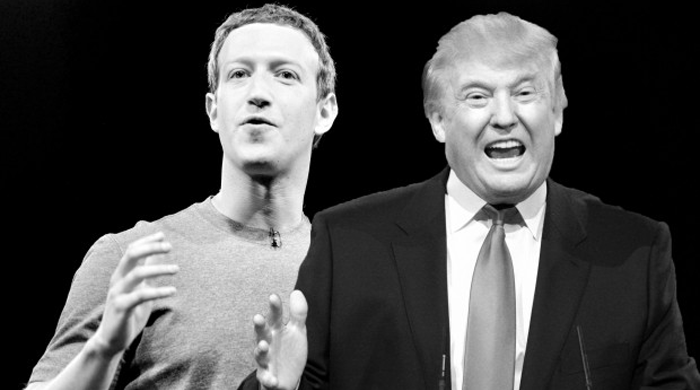Last night, the world changed in a profound way. Donald Trump is the President-Elect.
Please, allow me to digress into politics for a moment, to set the scene.
This isn’t an original observation, but Trump isn’t a regular Republican. He isn’t like former President George W Bush, or erstwhile Republican candidates Marco Rubio and Ted Cruz — they are politicians who operate in and feel constrained by the conventional, unspoken ‘rules’ of politics. Even if you disagree with their policies (and you should), you can assume there is method to any madness, and that their actions will be sufficiently checked by the legislature and the judiciary.
Donald Trump is a unique threat, and he has just been unleashed on the world. He stood on a platform of withdrawing from the world, (literally) throwing up a wall, and not protecting America’s NATO allies from Russian aggression. On a temperamental level, as Hillary Clinton liked to point out, he is a man who can be baited with a tweet.
Surely he should not be put in charge of the nuclear codes. Trump is profoundly unstable and unqualified to sit in the Oval Office, and that is terrifying.
Simply put, his election perhaps marks the end for western power. And for all of its faults, it has worked out quite well. Liberalism and enlightenment are the foundations on which the modern world is built on, and America has been the global custodian of these ideas since 1945. This might seem abstract but it is important.
The reason Apple and Google emerged from Silicon Valley and not Moscow, for example, is because respect for rule of law meant their founders could start companies and be confident that the state would not act arbitrarily and take their profits, or oppress the people who worked there. American institutions were designed to be meritocratic — so the best ideas rise to the top.
President Trump is about to destroy all of that. Don’t get me wrong, America is far from perfect, but these institutions weren’t half bad, and I’m willing to bet we’ll miss them when they’re gone. Though Hillary Clinton appears to have won the popular vote, the American electoral system means that Trump’s coalition of voters are in the ascendance.
So what can be done? How can the disaster that is Trumpism be mitigated? How can the next Trump be stopped?
(This is the bit where you remember you’re reading a tech blog.)
In Zuck We Trust?
At risk of sounding like a naive techno-utopian, the person best placed to save us is none other than Facebook founder Mark Zuckerberg. I’m serious.
Facebook — along with a handful of other major tech companies — plays an enormous role in this modern world of ours. It hosts our conversations, it connects us to our friends. It’s where many of us live out our digital lives.
Crucially, companies like Facebook set the rules by which we live, whether we realise it or not. When we load our personalised Facebook news feed, of the thousands of possible things that it could show us, Zuckerberg’s algorithms selects a selection of status updates, links, videos and photos for us. Our friends are already more likely to have similar political views to us — and Facebook amplifies this.
If you’re on the left, you’ll see lots about the evil Tories or evil Trump. If you’re on the right, the algorithm will pick newsfeed items about the evil Labour Party, or evil Obama. It’s not doing this maliciously — Facebook is merely serving up content that it thinks we’ll like, as it means we’ll spend longer on Facebook.
But the ability to make these decisions… that’s a lot of power for one website to have.
In aggregate, the effect of these algorithms is profound. It enables us to live in bubbles. One investigation by Buzzfeed found that there are scores of hyper-partisan Facebook pages that are just breeding grounds for bullshit. So much of what they post is untrue, yet most readers don’t think critically, and we’re all more willing to accept whatever confirms our pre-existing beliefs.
The end result of this is a massively divided and polarised political landscape, where people on both sides will believe any old nonsense, as long as it makes their opponents look bad. And this is one of the reasons Trump won. Obviously it isn’t all down to Facebook. There’s an entire ecosystem of media outlets, like Breitbart and The Canary, which feeds into these echo chambers, and there are other apps too. But Facebook, due to its sheer size, is definitely a fundamental part of the problem.
And this makes me wonder: is it time for Zuckerberg to take a more proactive stance? Is it time for him to take seriously his role as the Editor-in-Chief of a billion individualised newspapers?
Politics On Facebook
Since it was founded, when it comes to politics Facebook has tried to remain a neutral player. It hosts pages and content from politicians and campaigns of all stripes, along with a huge chunk of all global communications.
Perhaps the most politically pro-active thing it has done is encouraging users to press an ‘I voted’ button, which would share this fact with the user’s friends — something which, incidentally, has been proven to increase turnout in elections. The company is proud of this.
What I’m proposing now is that Zuckerberg should take this a step further. He shouldn’t become a partisan, per-se, but he should use Facebook’s immense power to call out bullshit and expose users to different points of view — for the good of democracy. Set the algorithm so that Republican voters see stories that might help them appreciate why Black Lives Matter, Democrats see stories about industrial decline in America’s rust belt, for example. And if a story is being shared that is utter bullshit? Either flag it as that or de-prioritise it.
This way America, as well as post-Brexit Britain and every other divided nation may start to heal the great chasms in our societies. Only when we understand our opponents will we be able to start making progress once again. We need pluralism for democracy to function. At the moment, Facebook is feeding ignorance, but if Zuck used his powers for good, it could give the west a healthier democratic culture.
(The only flaw in this plan: Facebook also counts on its board Trump supporter Peter Thiel — but the whole point of doing this is to make pluralism workable again, not to support one side over the other.)
I’m not alone in thinking that this might be a good idea. German chancellor Angela Merkel has also identified this problem, recently calling for greater transparency in how algorithms work.
Of course, such a solution wouldn’t be perfect. It wouldn’t solve the problem of Facebook having so much power to decide what media we consume. The fact that one website controls so much of our modern world — from our private data to our personal relationships — means that it deserves just as much scrutiny as the incoming Trump administration. But given the massive political divide it has helped create in seemingly every western nation, it may be our best hope of salvaging western democracy from this trainwreck.



